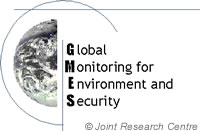Busquin clarifies 'security' role of GMES
Philippe Busquin took steps to clarify the role of the GMES (Global monitoring for environment and security) project in future European security at a conference entitled 'GMES: towards implementation' organised by the Belgian EU presidency in Brussels on 15 October. Commissioner Busquin said that the events of 11 September in the USA highlighted issues about Europe's capacity to intervene in the resolution of international crises. He said that Europe must ensure it has the means to intervene on an international scale should it decide to do so, adding that GMES is potentially one of the most powerful tools to improve Europe's capacity in this way. Mr Busquin said he was meeting with Javier Solana, the EU high representative for common foreign and security policy (CFSP), to clarify the link between security and the CFSP in the aftermath of the September 11 attacks. Emphasising that the GMES project and all scientific work carried out by the Research DG is civilian and not military, Mr Busquin added that a clearer definition is needed of the potential security role of GMES, adding that 'we have to make a distinction between defence missions and security missions.' He said that while security issues such as climate change and other environmental problems, natural or man-made disasters and the prevention of conflicts and crisis management are all linked, it is difficult to define a limit for the application of GMES technology at this stage: 'There is no immediate response to this very political question. Furthermore, the answer could change with time or circumstances.' A spokesperson for Commissioner Busquin said that although the GMES project and the Galileo satellite navigation project are primarily for civilian initiatives such as environmental monitoring and agricultural fraud, military use of GMES and Galileo data could not be ruled out if the need arose. Mr Busquin also hailed the GMES project as a prime example of the coordination of policymaking and research, at both a national and European level, envisaged by the proposed European research area (ERA). He said that cooperation throughout the whole of Europe, not just the Union, was necessary for the monitoring of many environmental factors, such as flooding, which have wide-ranging implications for the whole continent. He cited closer space research cooperation with Russia, made concrete by the signing of a joint document on the Euro-Russian Space Partnership on 3 October, as an example. Closer cooperation on the GMES project is a central pillar of the deal. GMES is one of the two main pillars of the Joint European Strategy for space, developed by the ESA and the EU and adopted in November 2000 by both the ESA's Ministerial Council and the EU Research council. The Action plan, which sets out proposals for the progressive implementation of GMES, will be discussed at the EU Research Council on 30 October 2001 in Brussels. High level Commission sources said that they expected the GMES proposals to be agreed at the forthcoming ESA Council, on 14 and 15 November in Edinburgh, and hoped to see the first GMES research projects underway by the end of the year.



